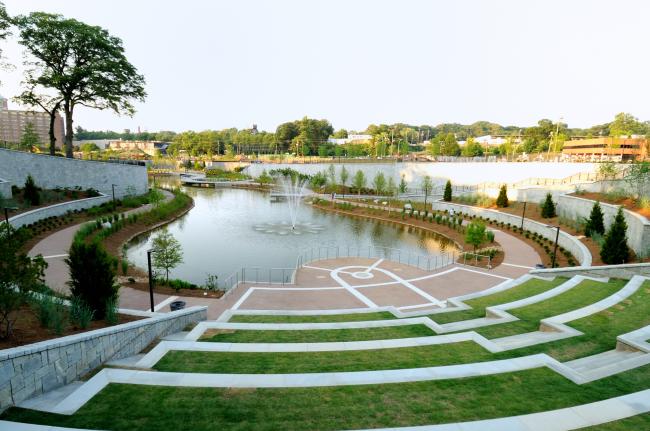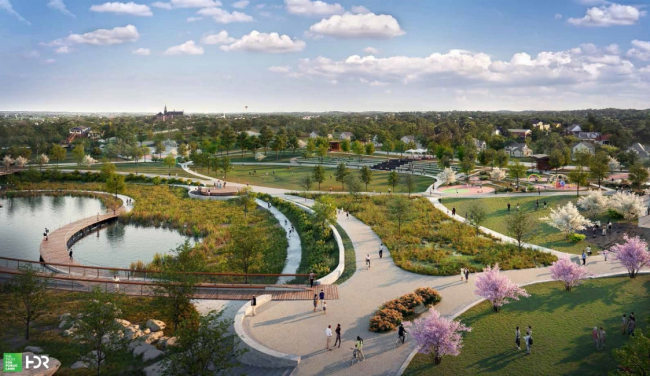Greening Atlanta’s Westside: Trust for Public Land profiles Vine City’s Cook Park
Vine City’s Cook Park was the subject of a recent blog post by the Trust for Public Land.
While the soon-to-open, 16-acre park has captured much attention for its beautiful design and resident-engaging amenities, it’s the park’s functionality that will prove to be a gamechanger for the communities it serves. In the piece, Trust for Public Land, a partner on the project alongside the City of Atlanta, uncovers the park’s hidden ability to solve a generations-long problem for Atlanta’s Westside residents – flooding.
For decades, residents of Vine City and English Avenue have been plagued by flooding that has resulted in dozens of homes being destroyed and hundreds more experiencing severe damage. The park will alleviate these threats with a sophisticated water management system, designed to absorb millions of gallons of stormwater, through engineered green space and a retention pond.

“Instead of only building big vaults and tunnels, which are expensive and really only serve the aim of flood control, we’re also looking everywhere in the watershed for places we can use parks and natural systems to manage flooding and water quality,” explains Cory Rayburn, Watershed Manager with the City of Atlanta, in the article. “Using ‘green infrastructure’ reduces flood risk, while providing all the other benefits of a great city park.”
Cook Park is a pillar of Westside Future Fund’s community health and wellness impact strategy, which makes the connection between a community’s economic health and the health of its residents. Behind the strategy is the belief that by providing access to wellness facilities and quality parks and greenspace, like Cook Park, in Westside neighborhoods, residents can get – and stay – healthier.
The article includes insights from resident and environmental activist Tony Torrence, Westside Future Fund’s president and CEO John Ahmann and staff from the City of Atlanta’s Department of Watershed Management.
“We’re working toward a shared vision of a healthier, more equitable, more prosperous future on the Westside, which will be hard to do if environmental justice issues like flooding persist,” said Ahmann. “The stormwater problems in this neighborhood are tied to health, they’re tied to property values, they’re tied to public safety and housing availability. You can’t address any of these challenges in isolation.”

Click here to read the full article.
For more information on the Cook Park project, click here.
